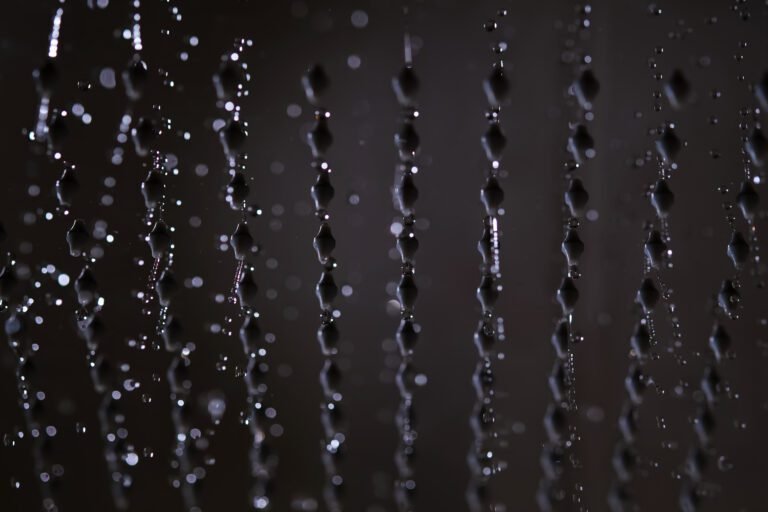At first glance, you may think that hard water isn’t an issue that’s worth stressing out, because, in the beginning, it may not cause bigger issues; however, over time, if not taken care of, it can cause serious damage, not only to your household, but to your well-being, as well!
Yes, that’s right! Various reports have shown that those who already suffer from certain skin conditions can have even bigger problems if they have hard water in their house. They may also experience dullness in skin and hair.
That’s precisely why it’s of huge importance to be vigilant when it comes to this and pay attention to the signs in your home that are trying to tell you that you have hard water issues in your household. So, let’s uncover those that are most common!
Let’s Learn More About It First!
First things first, before this guide further dives into this topic, let’s cover the basics. Namely, lots of people do not have the slightest idea what hard water is. It can be defined as water that’s full of minerals.
For example, tap water does contain iron, while in some places, hard water may be high in aluminum and manganese, too! Even though these minerals aren’t inherently bad for you, the problem with this water lies in the fact that it can have harmful bacteria, as well, which can negatively impact your health.
Did You Notice Any Changes In Your Skin And Hair?
Although we briefly talked about the consequences hard water can leave on your skin and hair, it doesn’t hurt to explore this topic a bit more. So, the point is that hard water’s impact on hair and skin can be pretty big, depending on your sensitivity to it. Lots of people who have problems with hard water usually notice that their skin and hair are drier than they used to be.
Some even concluded that their skin is also itchier. What causes all of these issues? That’s all because of certain minerals, such as magnesium and calcium, that make water harder. Both of these minerals (along with others) deposit on your hair and skin every single time you take a shower.
Bear in mind that at times, regardless of how you scrub, you simply fail to completely rinse shampoo and soap away. Those who generally have very dry skin may exacerbate this skin condition if they shower with hard water.
Additionally, if your hair is pretty dry, as well, then this dryness will be even more accentuated if you wash your hair with hard water. If you notice that the soap doesn’t lather properly, then it’s highly likely because of the hard water.
Your Water Releases Strange Odors
One of the most obvious signs that you are dealing with hard water is that your water smells and/or tastes strange. The most common cause of these two warning signs is the bacteria that’s inside it.
Now, if you conclude that your water has a very weird metallic taste, then it’s possibly due to an excess. On the other hand, if you feel the taste of rotten eggs in the water, then it can be a direct result of either specific bacteria that’s mixed with magnesium to create sulfates, or because of the hydrogen sulfide gas.
There are people who stated their water tastes just like dirt, which could be because it actually contains it, or due to algae or old pipes. Whatever the reason may be, to be frank, is there anyone in their right mind who likes their water to have a strange odor or taste? Most definitely not.
Therefore, if you notice any of the aforementioned tastes/smells, be sure to contact a professional to see whether you are really dealing with hard water or not.
Issues With The Scale Buildup
One of the biggest problems that could be caused by hard water is scale buildup, which is also known as limescale. This white residue is created due to magnesium and calcium crystallization.
When it comes to pipes, the limescale that’s inside them accumulates over time, decreasing water flow and, simultaneously, increasing the risk of clogs. To make things clearer, just imagine how cholesterol piles up in arteries over time, resulting in the narrowing of the passageway, not allowing the water to pass normally.
Well, something similar occurs in the pipes once the hard water “inhabits” them. Dishwashers and washing machines, on the flip side, deal with the scale buildup, which drastically lowers their efficacy, which (if this problem isn’t resolved on time) can cause breakdowns.
Besides that, it can leave spots on dishes, as well. One of the biggest enemies of the water heaters is hard water. When minerals settle at the bottom, they basically do not allow the water to heat properly.
That’s precisely why it’s of huge importance to get rid of the hard water (if you notice it is causing issues to your water heater), otherwise, your electricity bills are going to skyrocket, plus, this appliance is going to become fully dysfunctional pretty soon.
Hard Water Can Also Affect Your Clothing
If you think that hard water will only negatively impact your skin, hair, and appliances, think twice. This merciless “phenomenon” is going to impact your clothes, too! Now, if you have problems with hard water, then the detergent you are using for the laundry will not be able to get the job done right because of it.
That’s all because of the above-mentioned minerals. And then, if this doesn’t get fixed, you will end up with pieces of clothing that are full of strange stains (that are typically reddish or pinkish), stiff fabrics, yellowing on clothes that are lighter in color, and many other things that aren’t exactly visually appealing.
If you’d like to keep these issues at bay, then you should consider using hotter water and a detergent that’s more liquid.
As you can see, problems caused by hard water can be pretty messy and tedious to tackle. Therefore, if you want to avoid them, then you shouldn’t take things lightly and be sure to remember everything that was written today, so that you’re always wary of it.


































